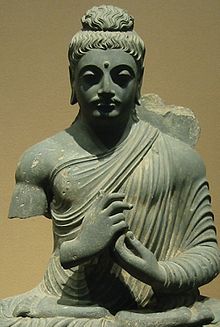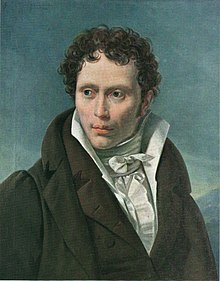Entertainment
Appearance
(Redirected from Entertainments)





Entertainment is a form of activity that holds the attention and interest of an audience, or gives pleasure and delight.
B
[edit]- The very beginning of the soul’s purgation is tranquility, in which the tongue is not given to discussing the affairs of men, nor the eyes to contemplating rosy cheeks or comely bodies, nor the ears to lowering the tone of the soul by listening to songs whose sole object is to amuse, or to words spoken by wits and buffoons—a practice which above all things tends to relax the tone of the soul.
- Basil of Caesarea, Letters, vol. 1, p. 13.
- When the mind is not dissipated upon extraneous things, nor diffused over the world about us through the senses, it withdraws within itself, and of its own accord ascends to the contemplation of God.
- Basil of Caesarea, Letters, vol. 1, p. 15.
- “Television, movies, books, all of these things, a lot of people like to believe they’re just fun and games, that they really don’t affect us, it’s just entertainment,” says Dr. Rebecca M. Chory, a professor in Frostburg State University’s business school who has studied TV’s influence on attitudes toward healthcare. “But the research consistently shows that’s not true.”
- Julie Beck, "Health Care in the Time of Grey's Anatomy", The Atlantic, (Aug 26, 2014).
- ENTERTAINMENT, n. Any kind of amusement whose inroads stop short of death by injection.
- Ambrose Bierce, The Cynic's Dictionary (1906); republished as The Devil's Dictionary (1911).
- To Plato and Nietzsche, the history of music is a series of attempts to give form and beauty to the dark, chaotic, premonitory forces in the soul—to make them serve a higher purpose, an ideal, to give man’s duties a fullness. … Such cultivation of the soul uses the passions and satisfies them while sublimating them and giving them an artistic unity. A man whose noblest activities are accompanied by a music that expresses them while providing a pleasure extending from the lowest bodily to the highest spiritual, is whole, and there is no tension in him between the pleasant and the good. By contrast a man whose business life is prosaic and unmusical and whose leisure is made up of coarse, intense entertainments, is divided, and each side of his existence is undermined by the other.
- Allan Bloom, The Closing of the American Mind (New York: 1988), p. 72.
- The ascetic Gotama … avoids watching dancing, singing, music and shows. He abstains from using garlands, perfumes, cosmetics, ornaments and adornments. … He refrains from running errands, from buying and selling.
- Gotama Buddha, Digha Nikaya, M. Walshe, trans. (1987), Sutta 1, verse 1.10, p. 69.
- "Or he might say: 'Whereas some honorable recluses and brahmins, while living on food offered by the faithful, attend unsuitable shows, such as: shows featuring dancing, singing, or instrumental music; theatrical performances; narrations of legends; music played by hand-clapping, cymbals, and drums; picture houses; acrobatic performances; combats of elephants, horses, buffaloes, bulls, goats, rams, cocks and quails; stick-fights, boxing and wrestling, sham-fights, roll-calls, battle-arrays, and regimental reviews — the recluse Gotama abstains from attending such unsuitable shows.'
- Gautama Buddha, Digha Nikaya, "Brahmajāla Sutta: The All-embracing Net of Views", translated by Bhikkhu Bodhi, (2010), Sutta 1, verse 1.13.
C
[edit]
- Advertisers will want to avoid programs with serious complexities and disturbing controversies that interfere with the “buying mood”. They seek programs that will lightly entertain and thus fit in with the spirit of the primary purpose of program purchases—the dissemination of a selling message.
- Noam Chomsky and E. S. Herman, Manufacturing Consent (New York: 1988), pp. 17-18.
- Drive away with the hand of humility every transitory joy, as being unworthy of it, lest by readily admitting it you receive a wolf instead of a shepherd.
- Saint John Climacus, The Ladder of Divine Ascent, as translated by Archimandrite Lazarus Moore (Holy Transfiguration Monastery: 1959), 7:57
D
[edit]- Turn my eyes away from gazing at worthless things, and revive me by your ways.
E
[edit]- The world of the distraction or diversion or perversion of humanity by technology culminates in adoration, veneration, and beatification, in the expression of properly religious sentiment. As Marx showed, alienation leads to religion. Humanity, when diverted, also becomes religious. The star system has been functioning for a long time. In the entertainment world the star becomes the idol in the primary sense, the absolute, transcendent image, a veritable Allah.
- Jacques Ellul, The Technological Bluff, G. Bromiley, trans. (1990), p. 382.
G
[edit]- Perhaps the biggest reason why intellectuals excoriated entertainment was that they understood all too well their own precariousness in a world dominated by it. For whatever the overt content of any particular work, entertainment as a whole promulgated an unmistakable theme, one that took dead aim at the intellectuals’ most cherished values. That theme was the triumph of the senses over the mind, of emotion over reason, of chaos over order, or the id over the superego, of Dionysian abandon over Apollonian harmony. Entertainment was Plato’s worst nightmare. It deposed the rational and enthroned the sensational and in so doing deposed the intellectual minority and enthroned the unrefined majority.
- Neal Gabler, Life: The Movie: How Entertainment Conquered Reality (1998), p. 21.
J
[edit]- I am the entertainer and I know just where I stand,
Another serenader and another long haired band.
Today I am your champion, I may have won your hearts.
But I know the game, you'll forget my name.
And I won't be here in another year
If I don't stay on the charts.- Billy Joel, The Entertainer, from Streetlife Serenade (1974).
M
[edit]- Literature … seeks to entertain—and why is this? … The reason, fundamentally, is that literature knows something that science does not: the human resistance to hearing the truth. Science does not inform scientists of this basic fact. … The wisdom of literature arises mainly from its attention to this point. To overcome the resistance to truth, literature makes use of fictions that are images of truth.
- Harvey Mansfield, “How to Understand Politics: What the Humanities Can Say to Science”.
- If I write a crappy comic book, it doesn't cost the budget of an emergent Third World nation. When you've got these kinds of sums involved in creating another two hours of entertainment for Western teenagers, I feel it crosses the line from being merely distasteful to being wrong.
N
[edit]- With the lights out, it's less dangerous.
Here we are now, entertain us.
I feel stupid and contagious.
Here we are now, entertain us.- Nirvana, "Smells Like Teen Spirit", Nevermind (1991), tr. 1.
P
[edit]- Popular entertainments of all kinds have been blamed for dragging down public morals in a gathering pattern of accusation which remains essentially the same even though it is attached to radically different forms of amusement : pre-modern feasts and festivals; eighteenth-century theatres and bawdy-houses, mid-nineteenth-century penny gaffs; the Music Halls of the “Gay” Nineties ; the first flickering danger-signs from the silent movies ; the Hollywood picture palaces between the wars ; and television viewing in our own historical time. Each, in its own time, has been accused of encouraging a moral debauch; each has been said to encourage imitative crime among the young.
- Pearson G. "Hooligan : a History of Respectable Fears", London, Macmillan, (1983), p. 208; as qtd. in Julian Petley, "“Are We Insane ?”. The “Video Nasty” Moral Panic", Paniques et croisades morales, 43-1, 2012, pp. 35-57.
- Where the company are real gentlemen and men of education, you will see no flute-girls, nor dancing-girls, nor harp-girls; and they have no nonsense or games, but are contented with one another’s conversation, of which their own voices are the medium, and which they carry on by turns and in an orderly manner. ... A company like this of ours, and men such as we profess to be, do not require the help of another’s voice. ... This sort of entertainment they decline, and prefer to talk with one another, and put one another to the proof in conversation.
- Plato, Protagoras in Protagoras, 347c, Benjamin Jowett, trans.
- Those who practice speaking in a way to catch the favor of vulgar herd also turn out in general to be incontinent in their lives and fond of pleasure. And this surely is to be expected; for if, in providing pleasure for others, they disregard what is honorable, they would be slow to place that which is upright and sound above the gratification of their own pleasures and luxurious tastes, and slow to pursue the temperate course instead of the agreeable.
- Plutarch, “The education of children,” Moralia, 6B
S
[edit]- One should eliminate yearning that arises for various idle conversations, which often take place, and for all kinds of entertainment.
- Santideva, A Guide to the Bodhisattva Way of Life, V. Wallace and B. Wallace, trans. (1997), § 5.45.
- What a man is by himself, what accompanies him into solitude, and what no one can give to him or take from him is obviously more essential to him than everything he possesses, or even what he may be in the eyes of others. A man of intellect, when entirely alone, has excellent entertainment in his own thoughts and fancies, whereas the continuous diversity of parties, plays, excursions, and amusements cannot ward off from the dullard the tortures of boredom.
- Arthur Schopenhauer, “Aphorisms on the Wisdom of Life,” Parerga und Paralipomena, E. Payne, trans. (1974) Vol. 1, pp. 318-319.
- Dancing, the theatre, society, card-playing, games of chance, horses, women, drinking, traveling, and so on … are not enough to ward off boredom where intellectual pleasures are rendered impossible by lack of intellectual needs.
- Arthur Schopenhauer, “Aphorisms on the Wisdom of Life,” Parerga und Paralipomena, E. Payne, trans. (1974) Vol. 1, p. 344.
W
[edit]
- The early Christians had to resist the unwholesome environment in the pleasure-seeking world around them. At the Roman circus, spectators were entertained by viewing the sufferings of others. Violence, bloodshed, and sexual immorality were staged for the amusement of the populace, but the early Christians stayed away from such things. Today, much of the world’s entertainment features similar elements and caters to base human appetites. We need to “keep strict watch” on how we walk, turning away from demoralizing entertainment. (Eph. 5:15, 16; Ps. 11:5) And even if the entertainment itself may not be objectionable, the general atmosphere may be unacceptable. -1 Pet. 4:1-4
- "Organized to Do Jehovah's Will". Watch Tower Society. 2015, pp.135-136
- What man needs is silence and warmth; what he is given is an icy pandemonium.
- Simone Weil, Human Personality (1943), p. 59.
- Whatever weakens your reason, impairs the tenderness of your conscience, obscures your sense of God, takes off your relish for spiritual things, whatever increases the authority of the body over the mind, that thing is sin to you, however innocent it may seem in itself.
- Susanna Wesley, Letter to John Wesley, June 8, 1725.
- For the amoral herd that fears boredom above all else, everything becomes entertainment. Sex and sport, politics and the arts are transformed into entertainment. … Nothing is immune from the demand that boredom be relieved (but without personal involvement, for mass society is a spectator society).
- Merold Westphal, Kierkegaard’s Critique of Reason and Society, p. 50.


